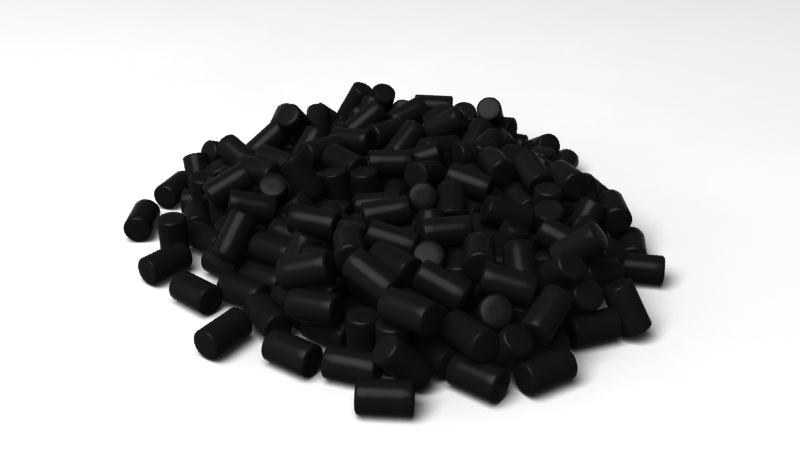Hysol GR360A-ST | Black Epoxy Mold Compound
Harmonization Code : 3907.30.00.85 | Polyacetals, other polyethers and epoxide resins, in primary forms; polycarbonates, alkyd resins, polyallyl esters and other polyesters, in primary forms : Epoxide resins : Other
Main features
- Low cost of ownership
- 77% filler weight
- For Diodes, TO and DIP
Product Description
Hysol GR360A-ST epoxy molding compound delivers outstanding performance and ease of use. This "Green" environmentally friendly epoxy molding compound contains no bromine, antimony or phosphorus flame retardant. It provides the lowest cost of ownership with superior moldability and reliability.
Hysol GR360A-ST has an 77% filler loading and is typically used for Diodes, TO and DIP packages. It meets UL 94 V-0 Flammability at 6.35mm thickness. Its CTI, comparative tracking index value is 500V.
- GR360: CTI = 500 V (PLC-1 / IEC Material Group II)
- GR360A: CTI = 450 V (PLC-1 / IEC Material Group II)
Technical Specifications
| General Properties | |
| Color Color The color | Black |
| Filler Content | 77 % |
| Specific Gravity Specific Gravity Specific gravity (SG) is the ratio of the density of a substance to the density of a reference substance; equivalently, it is the ratio of the mass of a substance to the mass of a reference substance for the same given volume. For liquids, the reference substance is almost always water (1), while for gases, it is air (1.18) at room temperature. Specific gravity is unitless. | 1.84 |
| Chemical Properties | |
| Moisture absorption | 0.49 % |
| Thermal Properties | |
| Glass Transition Temperature (Tg) Glass Transition Temperature (Tg) The glass transition temperature for organic adhesives is a temperature region where the polymers change from glassy and brittle to soft and rubbery. Increasing the temperature further continues the softening process as the viscosity drops too. Temperatures between the glass transition temperature and below the decomposition point of the adhesive are the best region for bonding. The glass-transition temperature Tg of a material characterizes the range of temperatures over which this glass transition occurs. | 168 °C |
| UL 94 Rating UL 94 Rating Flammability rating classification. It determines how fast a material burns or extinguishes once it is ignited. HB: slow burning on a horizontal specimen; burning rate less than 76 mm/min for thickness less than 3 mm or burning stops before 100 mm V-2: burning stops within 30 seconds on a vertical specimen; drips of flaming particles are allowed. V-1: burning stops within 30 seconds on a vertical specimen; drips of particles allowed as long as they are not inflamed. V-0: burning stops within 10 seconds on a vertical specimen; drips of particles allowed as long as they are not inflamed. 5VB: burning stops within 60 seconds on a vertical specimen; no drips allowed; plaque specimens may develop a hole. 5VA: burning stops within 60 seconds on a vertical specimen; no drips allowed; plaque specimens may not develop a hole | V0 |
| Physical Properties | |
| Spiral Flow @ 175°C | 98 cm |
| Curing Conditions | |
| Transfer Pressure | 40 - 100 kg/cm2 |
| Transfer Time | 10 - 20 s |




